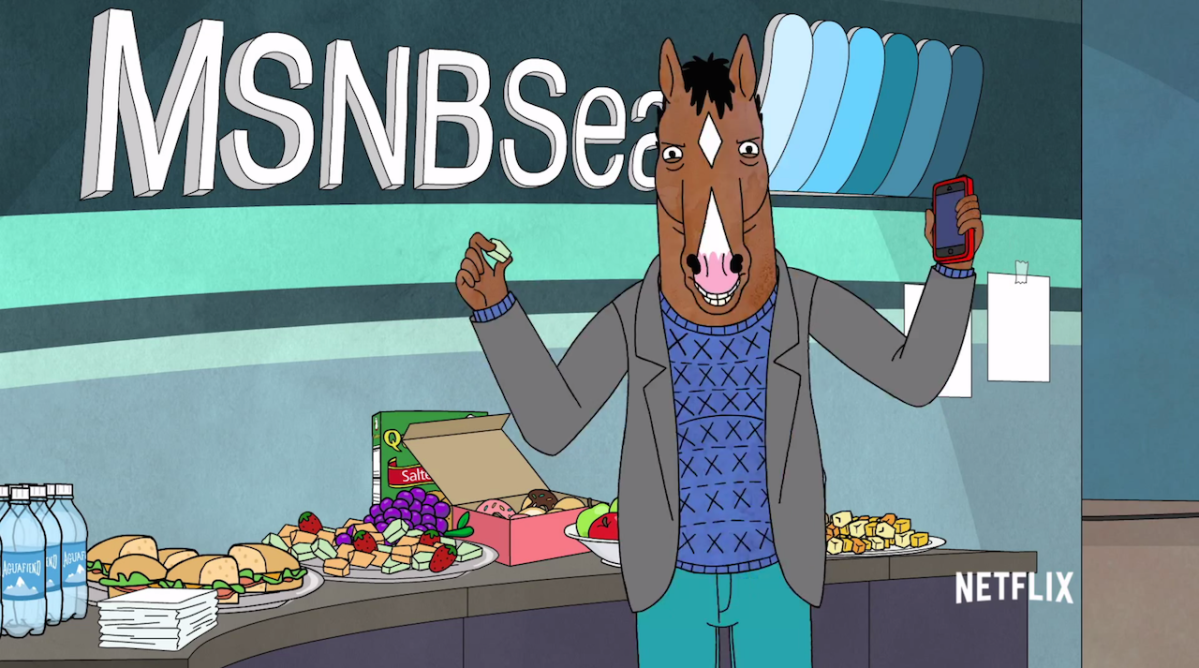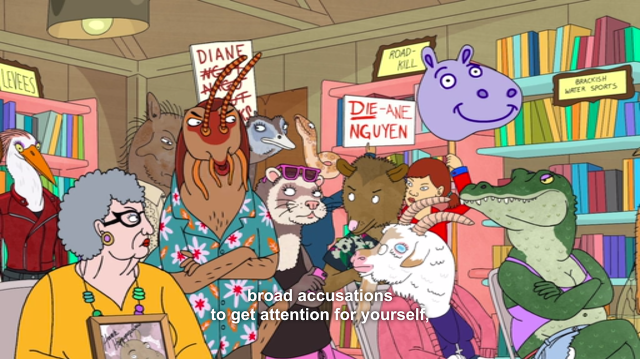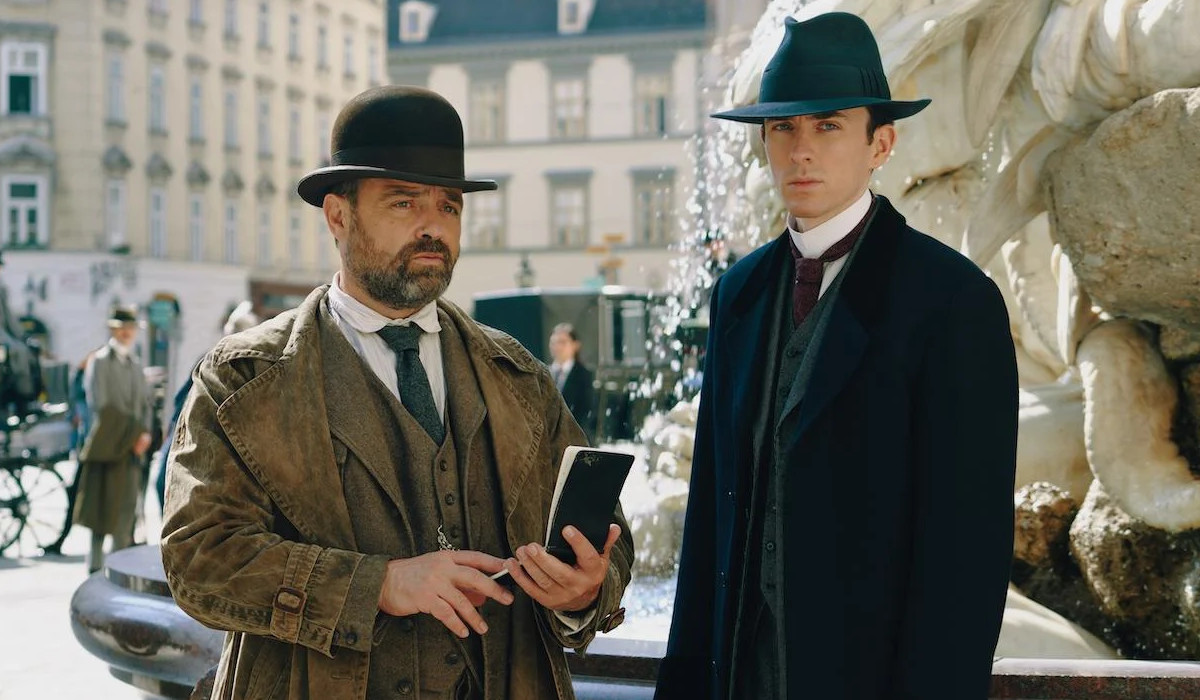We’ve talked before about how BoJack Horseman has this eerie way of getting you to identify with a depressed alcoholic cartoon horse. The writers have also displayed a strong awareness of the kinds of problems around gender in comedy and Hollywood, but now the show has found a way to perfectly capture what it’s like to call out sexual harassment in Hollywood.
In the second season of BoJack Horseman, Diane Nguyen (Alison Brie) goes off-script during a book tour promoting her biography of BoJack Horseman (Will Arnett). When she’s asked about the things she wrote regarding some of the dark things BoJack’s done, she names a list of problematic celebrities who’ve done worse, including Sean Penn, Mike Tyson, Woody Allen, and Bill Murray.
Included in the list is fictional character Hank Hippopopalous, who’s been accused of sexual misconduct by many of his assistants (see where this is going?). In the show—as in real life—the public’s reaction is swift. Diane’s instantly vilified, called a “feminutcase,” and is verbally harassed at the book tour’s remaining stops.
When she doubles down, it gets even worse as her vehement defense of these assistants begins to take a toll on the lives of those she loves. Her husband, Mr. Peanutbutter, pressures her to stop because he’s just started a new show, and a lot of people around him are worried about what this is doing for his image. As Diane begins to receive death threats, and as she’s told (by Hank Hippopopalous himself) that there’s nothing she can do about it because “that’s just how Hollywoo” works, she realizes she can’t win. The problems she’s fighting to fix run so deep and so long that she should just give up.
The support around her fades as she finds out that those closest to her want her to give up her position. People are pressuring them to pressure her into giving up. In her pursuit of exposing the truth and calling out sexual harassment where it lives, she has everything taken from her by a public and an industry that could care less about these terrible things their darlings have done.
You don’t have to look very far to find parallels between this episode and real life. It’s almost a direct reflection of the Bill Cosby case where he was accused of raping numerous women. Nobody wanted to believe the women when they came forward. Network pundits defended Cosby, and so much suspicion was lobbed against his accusers as they were constantly having their position questioned. The conversation only changed when a deposition was released wherein Cosby admitted to the wrongdoings.
This entire episode is just so perfectly on tone that it’s eerie. It begins as a strange lampoon of how an adoring public refuses to acknowledge the horrific things their “faves” have done, but it quickly becomes a straight, sober reflection of the bull that women have to deal with in Hollywood.
By the end of the episode, Hank Hippopopalous goes on being a star and a media darling; Diane has to leave the country. There’s a strong sense of absolute unfairness, and this is where the depressing truth comes out. What began as a parody quickly became a sad reflection of how things really are: nobody wants to believe women when they open up about things like this, and the people who know “that’s just how it is” use that public attitude to get away with things they shouldn’t be able to.
But that’s not to say that it’s all awful. While the show held on to that down beat for much of the rest of the season, real life found a way to pick back up—even if just a little bit. For example, the tide has finally turned against Cosby, who’s now been cut from the last project he had going for him. We’re a ways away from any kind of justice, but if nothing else, the conversation around why we don’t believe women has re-entered the public consciousness. If we can keep it going, then maybe change can come sooner than we think.
(via BuzzFeed)
—Please make note of The Mary Sue’s general comment policy.—
Do you follow The Mary Sue on Twitter, Facebook, Tumblr, Pinterest, & Google +?










Published: Jul 21, 2015 12:07 pm